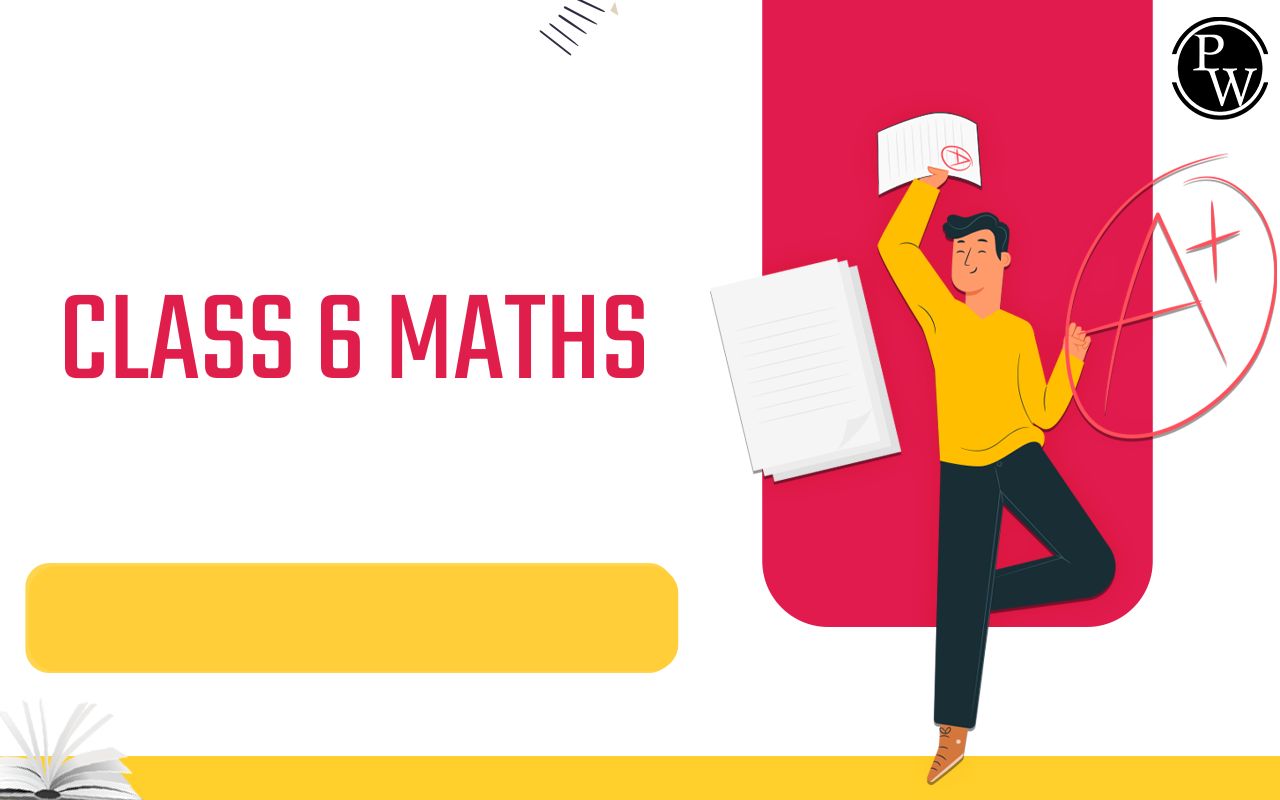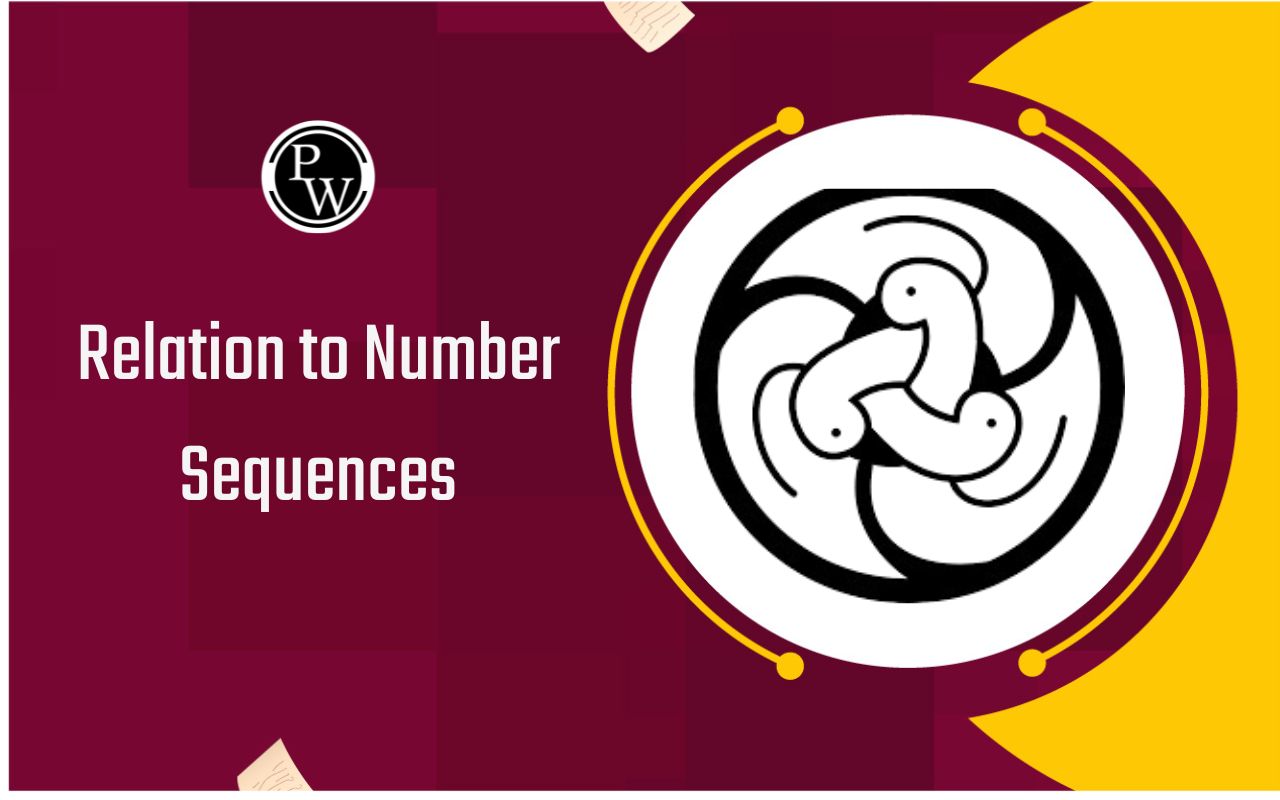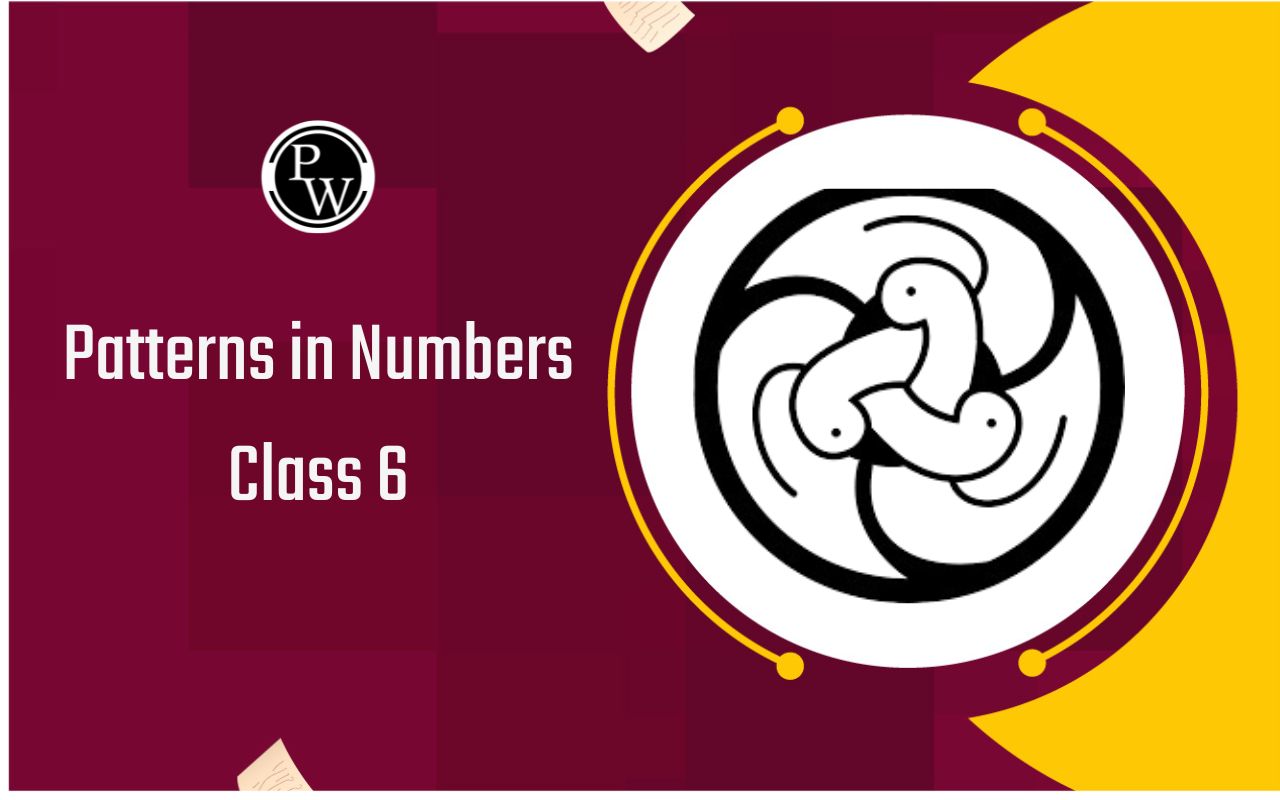
CBSE Class 6 Science Notes Chapter 2: Ever wondered why some foods make you feel bouncy and energetic while others help you build strong muscles? The answer lies in the magical ingredients called nutrients! In CBSE Class 6 Science Chapter 2, we'll discuss six essential nutrients that power your body and keep you healthy. Find all the notes to Class 6 Science Chapter 2 on this page!
CBSE Class 6 Science Notes Chapter 2 PDF
Chapter 2 of CBSE Class 6 Science, "Components of Food," explains the different nutrients found in food and their importance for the body. It highlights essential components such as carbohydrates, proteins, fats, vitamins, minerals, water, and roughage. Carbohydrates provide energy, proteins help in growth and repair, fats store energy, and vitamins and minerals are vital for various body functions. Hence, here we have provided CBSE Class 6 Science Notes Chapter 2 Components of Food pdf -CBSE Class 6 Science Notes Chapter 2 PDF Download
CBSE Class 6 Science Notes Chapter 2 Components of Food
Food: It's a collection of edible items that give energy to living things, mend old tissues, and construct new ones. Nutrition: The act of taking in nutrients needed for our body's growth, development, and energy is called nutrition. Our food consists of three key elements known as nutrients: fats, proteins, and carbohydrates. Furthermore, our bodies need water, salts (minerals), vitamins, and fibres. Diet: It is the amount of food eaten by a person at a time. Malnutrition: When someone doesn't have enough food or lacks essential nutrients in their diet, they can become weak. When the body doesn't receive proper nutrition, it's referred to as malnutrition. Various food components are grouped in three classes:- Energy giving food: Carbohydrates and fats.
- Bodybuilding food: Proteins.
- Protective food: Vitamins and minerals.
Carbohydrates
- Foods like rice, wheat, sorghum, peas, beans, sago (sabudana), sugarcane, sugar beet, along with fruits such as banana, mango, and melons, as well as vegetables, provide us with carbohydrates.
- Cellulose, starch, sucrose, glucose, and fructose are key carbohydrates in our diet.
- Starch causes iodine solution to change to a dark blue or black colour.
Fats
- Fats can come from either plants or animals. Examples of plant-derived fats include groundnut oil, soybean oil, and mustard oil, while animal-derived fats include butter and ghee.
- Fats serve as fuel in our bodies, offering more energy compared to carbohydrates. In small amounts, fat deposits provide advantages for our body, aiding in organ growth, protection from injury, and prevention of heat loss from the body surface.
- However, excessive fat deposition is detrimental to health, leading to obesity. Fatty substances leave greasy and transparent spots on paper.
Proteins
- Milk, fish, meat, cheese, and eggs are the primary sources of animal proteins. Plant proteins can be found in legumes like beans and lentils.
- Proteins are necessary for the growth and repair of our bodies. They aid in constructing new tissues and contribute to the strength of hair and nails, as well as the structure of muscles. They are also essential components of our blood, facilitating proper bodily functions.
- During periods requiring rapid tissue growth, such as infancy, pregnancy, or when a mother is breastfeeding, a significant amount of protein is necessary.
Vitamins
Our bodies need vitamins in small amounts. Vitamins help keep our eyes, bones, teeth, and gums healthy. Foods that are rich in vitamins are called protective foods because they shield our bodies from diseases and help us stay healthy.Minerals
Our bodies require minerals in small quantities. Each mineral is necessary for the proper growth of the body and to maintain good health.Water
- Our body needs a good amount (around 5-7 litres) of water every day.
- Water helps our body do various things like aiding digestion, getting rid of waste through urine, and purifying the blood.
- It also helps keep our body cool by sweating and promotes blood circulation.
Roughage
- Whole grains, flour, cereals, potatoes, fresh food, raw, and cooked vegetables contribute fibre to our meals.
- This aids in the digestion process and avoids constipation.
Some Diseases or Disorders Caused by deficiency of Vitamins and Minerals
| Some Diseases or Disorders Caused by deficiency of Vitamins and Minerals | ||
| Name of vitamins and minerals | Deficiency disease or disorder | Main symptoms |
| Vitamin A | Night blindness | Poor or loss of vision in darkness (night), sometimes complete loss of vision |
| Vitamin B1 | Beriberi | Weak muscles, and very little energy to work |
| Vitamin C | Scurvy | Bleeding gums |
| Vitamin D | Rickets | Bones become soft and bent |
| Calcium | Hypocalcemia | Weak bones, tooth decay |
| Iodine | Goitre | Glands in the neck appear swollen, mental disability in children |
| Iron | Anaemia | Weakness |
Balanced Diet
We need to eat enough various nutrients for our body to work well. A diet that has enough different nutrients needed for our body to stay healthy is called a balanced diet. A balanced diet should have food from these four groups.- Milk group: includes milk and milk products
- Meat group: includes meat (chicken, fish, lamb, etc.) and meat substitutes (beans, peas, nuts, and seeds)
- Fruit and vegetable group: includes fruits and vegetables
- Grain group: includes breads and cereals.
- Vitamins
- Proteins
- Fats
- Carbohydrates
| CBSE Syllabus Class 6 | |
| CBSE Class 6 Science Syllabus | CBSE Class 6 Maths Syllabus |
| CBSE Class 6 Social Science Syllabus | CBSE Class 6 English Syllabus |
Components Of Food
The things we eat contain various parts called nutrients. Nutrients are things our body requires for good growth and proper function. Food has six main parts: carbohydrates, fats, proteins, vitamins, minerals, and roughage or dietary fibres. These parts help our body in different ways.Carbohydrates
Carbohydrates give your body energy to keep it running all day long. There are two main kinds of carbohydrates found in food: sugar and starch. Sugars: Sugar is commonly known as a simple carbohydrate. Fruits, honey, and table sugar are among the sources of sugar. Starch: Starch, also known as complex carbohydrate, is how plants store energy. Foods like rice, wheat, corn, potato, and bread contain starch. When we consume these plant-based foods with sugar and starch, our digestive system breaks them down into glucose. Glucose, the simplest sugar form, gets absorbed into the blood, giving us energy.Proteins
Our bodies require proteins to build muscles and repair tissues. Most of our muscles, organs, and blood are composed of proteins. Without consuming proteins, our bodies cannot repair damaged cells or create new ones. Proteins in our diet can be obtained from both animal and plant sources. Animal sources include meat, fish, eggs, and milk, while plant sources include pulses, soybeans, chickpeas, and nuts.Vitamins
Our body requires vitamins to work well. They support the health of our eyes, bones, teeth, and gums. There are 13 vitamins, each with its own job. Vitamins come in two types: fat-soluble and water-soluble. Fat-soluble vitamins like Vitamins A, D, E, and K are stored in the body's fat tissues and are used when the body requires them. Vitamin D is produced by our body when exposed to sunlight. Water-soluble vitamins such as Vitamins B1, B2, B3, B6, B12, and folic acid (collectively referred to as vitamin B complex) and vitamin C dissolve in water. Because they are not stored in the body, it's important to get them regularly from foods like citrus fruits, spinach, and other leafy greens. Not having enough vitamins in the body can lead to deficiency diseases.Minerals
Similar to vitamins, minerals also contribute to our body's overall health. They play essential roles such as building bones, teeth, and blood cells, as well as regulating heartbeat. Minerals come in two main types: macrominerals and trace minerals. Macrominerals, which are large in quantity (macro: large), are required by the body in relatively larger amounts compared to trace minerals. Examples of major minerals include calcium, magnesium, sodium, and potassium. On the other hand, trace minerals are needed by the body in very small amounts. Examples of trace minerals comprise iron, zinc, copper, and iodine.Roughage or Dietary Fibres
The part of plant food that doesn't give our body nutrients but helps keep our digestive system healthy is known as roughage or dietary fibres. Roughage are of two types: soluble and insoluble. Soluble fibre dissolves in water, while insoluble fibre does not. Foods like apples, strawberries, peaches, and rice contain soluble fibre, which aids in blood circulation. Whole grains, carrots, cabbage, turnips, and cauliflower are examples of foods rich in insoluble fibre. Not consuming enough insoluble fibre can lead to hard stools and difficulty passing them, a condition known as constipation.Water
Almost 70% of our body weight is water. Water is needed by our body for good health.- It helps to transport substances inside our body.
- It helps our body to absorb nutrients from food.
- It helps to regulate our body temperature.
- It is needed for various chemical reactions that take place inside our body during digestion, excretion, etc.
Deficiency Diseases
Not having enough carbohydrates, proteins, vitamins, or minerals in your diet can lead to illnesses. Illnesses caused by not getting enough nutrients are known as deficiency diseases. These diseases can't spread from one person to another.Deficiency of Carbohydrates
Carbohydrates are essential for providing energy to our bodies. Not having enough carbohydrates in your diet can lead to feeling low on energy and lacking stamina. Someone who does physically demanding work, like a labourer, requires more carbohydrates in their diet compared to someone who works in an office and sits for most of the day.Deficiency of Proteins
Growing kids require additional proteins in their meals. Insufficient protein intake can make muscles weaker. When there's a shortage of proteins, it can result in a condition known as kwashiorkor. When both protein and carbohydrate intakes are inadequate, it's termed Protein Energy Malnutrition (PEM), which can lead to marasmus. These illnesses are more prevalent among children in rural areas. A child with kwashiorkor may exhibit several symptoms including a distended belly, slowed growth, swelling of the face and limbs (particularly the feet), skin issues, cognitive delays, and diarrhoea. With prompt treatment and an improved protein-rich diet, this condition can be corrected. Marasmus tends to affect infants and children younger than 5 years old more frequently. A child experiencing marasmus typically becomes extremely thin, exhibits sluggish body growth, lacks energy, loses appetite, has weak legs, may experience mental delays, and demonstrates poor muscle development. To combat these illnesses, the Government of India has implemented initiatives such as the Integrated Child Development Scheme (ICDS) and the Mid-day Meal scheme in schools.Deficiency of Vitamins
Certain vitamins can be harmed by heat and light. For instance, vitamin C can be damaged when cooked. Hence, it's best to consume foods rich in vitamin C in their raw form. In the past, sailors often suffered from scurvy, a disease for which there was no known cure. Many sailors lost their lives to this illness during extended sea journeys. In the 18th century, James Lind discovered that eating citrus fruits helped prevent scurvy among sailors. Deficiency of Water in the Body Water is crucial for our bodies to work properly. When we lose too much water, it can cause dehydration. Dehydration makes us lose salts and feel weak. Giving the patient Oral Rehydration Solution (ORS) helps them recover from dehydration. You can get ORS for free at primary health centres. You can also make it at home by mixing 8 teaspoons of sugar and 1 teaspoon of salt in 1 litre of clean drinking water.Related Links -
Benefits of CBSE Class 6 Science Notes Chapter 2
CBSE Class 6 Science Notes Chapter 2 cover various topics related to the subject matter, typically focusing on fundamental concepts and theories within the realm of science. These notes serve as a supplementary resource to the textbooks prescribed by the Central Board of Secondary Education (CBSE) in India. Here are some of the key benefits of using these notes:- Structured Content: Class 6 Science Notes for Chapter 2 provide a structured overview of the topics covered in the chapter. They often break down complex concepts into smaller, more digestible chunks of information, making it easier for students to grasp the material.
- Clarity and Conciseness: These notes are designed to be concise yet comprehensive, ensuring that students receive the necessary information without feeling overwhelmed. They often highlight the most important points and explanations, helping students focus on what's essential for understanding the subject matter.
- Supplementary Learning Resource: While textbooks provide the primary source of information, Class 6 Science Notes Chapter 2 act as a valuable supplementary resource. They offer additional explanations, examples, and insights that can enhance students' understanding of the topics covered in the chapter.
- Revision Aid: As students prepare for exams or quizzes, these notes serve as an invaluable tool for revision. They provide a quick reference guide to review key concepts, formulas, and definitions, helping students reinforce their learning and consolidate their knowledge.
- Visual Aids: Many Class 6 Science Notes include diagrams, charts, and illustrations to complement the textual content. Visual aids can enhance comprehension by providing visual representations of abstract concepts, making them easier to understand and remember.
- Practice Questions and Exercises: These notes often include practice questions and exercises designed to test students' understanding of the material. By solving these questions, students can assess their comprehension and identify any areas where they may need further clarification or practice.
- Promotion of Self-Study: Class 6 Science Notes Chapter 2 encourages self-study and independent learning. Students can use these notes to review the material covered in class, deepen their understanding of key concepts, and explore additional topics at their own pace.
- Accessibility: Digital versions of these notes are often available online, making them easily accessible to students anytime, anywhere. This accessibility ensures that students can study the material at their convenience, whether they're at home, school, or on the go.
- Teacher Support: Teachers can also benefit from these notes as a resource for lesson planning and instruction. They can use them to supplement their teaching materials, provide additional explanations to students, and create engaging learning activities based on the content covered in the chapter.
How to Prepare with CBSE Class 6 Science Notes Chapter 2
Preparing for CBSE Class 6 Science Chapter 2 can be simplified by following a structured approach that includes utilising notes effectively. Here's a detailed guide on how to prepare using CBSE Class 6 Science Notes for Chapter 2: Understanding the Chapter- Read the Chapter Thoroughly : Before diving into notes, read the chapter thoroughly to grasp the concepts, understand the terminology used, and identify key points.
- Identify Key Concepts : Pay attention to the main concepts, definitions, and principles discussed in the chapter. Understanding these will help in making effective notes.
- Concise and Organised Format : Ensure that your notes are concise and organised. Use bullet points, headings, and subheadings to structure your notes logically.
- Focus on Important Information : While taking notes, focus on essential information such as definitions, key terms, important equations, and examples provided in the chapter.
- Use Visual Aids : Incorporate diagrams, charts, and tables in your notes where necessary. Visual aids can help in better understanding and retention of information.
- Highlighting : Use highlighting or underlining to emphasise important points in your notes. This will make it easier to review and revise later.
- Regular Revision : Schedule regular revision sessions to review the notes you've taken. This will help in reinforcing the concepts and improving retention.
- Practice Questions : Solve practice questions related to the chapter to test your understanding. Use your notes as a reference while attempting these questions.
- Self-Assessment : Assess your understanding of the chapter by attempting sample papers or practice tests. Refer to your notes to clarify any doubts or concepts you find challenging.
- Active Learning : Engage in active learning techniques such as summarising the chapter in your own words, teaching the concepts to someone else, or creating flashcards based on your notes.
- Collaborative Learning : Discuss the chapter with classmates or study groups. Share your notes and discuss any doubts or concepts that are unclear.
- Seek Help When Needed : Don't hesitate to seek help from teachers, tutors, or online resources if you encounter difficulties understanding any concept in the chapter.
- Stay Consistent : Consistency is key to effective learning. Make a habit of regularly reviewing your notes and practising problems to strengthen your understanding.
CBSE Class 6 Science Notes Chapter 2 FAQs
How much protein do I need daily?
Protein requirements vary based on factors like age, weight, and activity level, but generally, adults need about 0.8 grams of protein per kilogram of body weight per day.
Are all fats bad for health?
No, not all fats are bad. Healthy fats like those found in avocados, nuts, seeds, and fatty fish can actually benefit heart health and support overall well-being.
Can I get enough vitamins from food alone?
While it's possible to obtain most vitamins from a balanced diet, some individuals may need supplements to meet specific nutritional needs, especially if they have dietary restrictions or health conditions.
What role do minerals play in the body?
Minerals are essential for various bodily functions, including bone health, nerve transmission, muscle function, and hormone regulation, ensuring optimal health and vitality.
How can I ensure a balanced diet for my child?
Encourage your child to eat a variety of foods from all food groups, including fruits, vegetables, whole grains, lean proteins, and dairy products, to ensure they get the nutrients they need for growth and development.
🔥 Trending Blogs
Talk to a counsellorHave doubts? Our support team will be happy to assist you!

Check out these Related Articles
Free Learning Resources
PW Books
Notes (Class 10-12)
PW Study Materials
Notes (Class 6-9)
Ncert Solutions
Govt Exams
Class 6th to 12th Online Courses
Govt Job Exams Courses
UPSC Coaching
Defence Exam Coaching
Gate Exam Coaching
Other Exams
Know about Physics Wallah
Physics Wallah is an Indian edtech platform that provides accessible & comprehensive learning experiences to students from Class 6th to postgraduate level. We also provide extensive NCERT solutions, sample paper, NEET, JEE Mains, BITSAT previous year papers & more such resources to students. Physics Wallah also caters to over 3.5 million registered students and over 78 lakh+ Youtube subscribers with 4.8 rating on its app.
We Stand Out because
We provide students with intensive courses with India’s qualified & experienced faculties & mentors. PW strives to make the learning experience comprehensive and accessible for students of all sections of society. We believe in empowering every single student who couldn't dream of a good career in engineering and medical field earlier.
Our Key Focus Areas
Physics Wallah's main focus is to make the learning experience as economical as possible for all students. With our affordable courses like Lakshya, Udaan and Arjuna and many others, we have been able to provide a platform for lakhs of aspirants. From providing Chemistry, Maths, Physics formula to giving e-books of eminent authors like RD Sharma, RS Aggarwal and Lakhmir Singh, PW focuses on every single student's need for preparation.
What Makes Us Different
Physics Wallah strives to develop a comprehensive pedagogical structure for students, where they get a state-of-the-art learning experience with study material and resources. Apart from catering students preparing for JEE Mains and NEET, PW also provides study material for each state board like Uttar Pradesh, Bihar, and others
Copyright © 2026 Physicswallah Limited All rights reserved.






